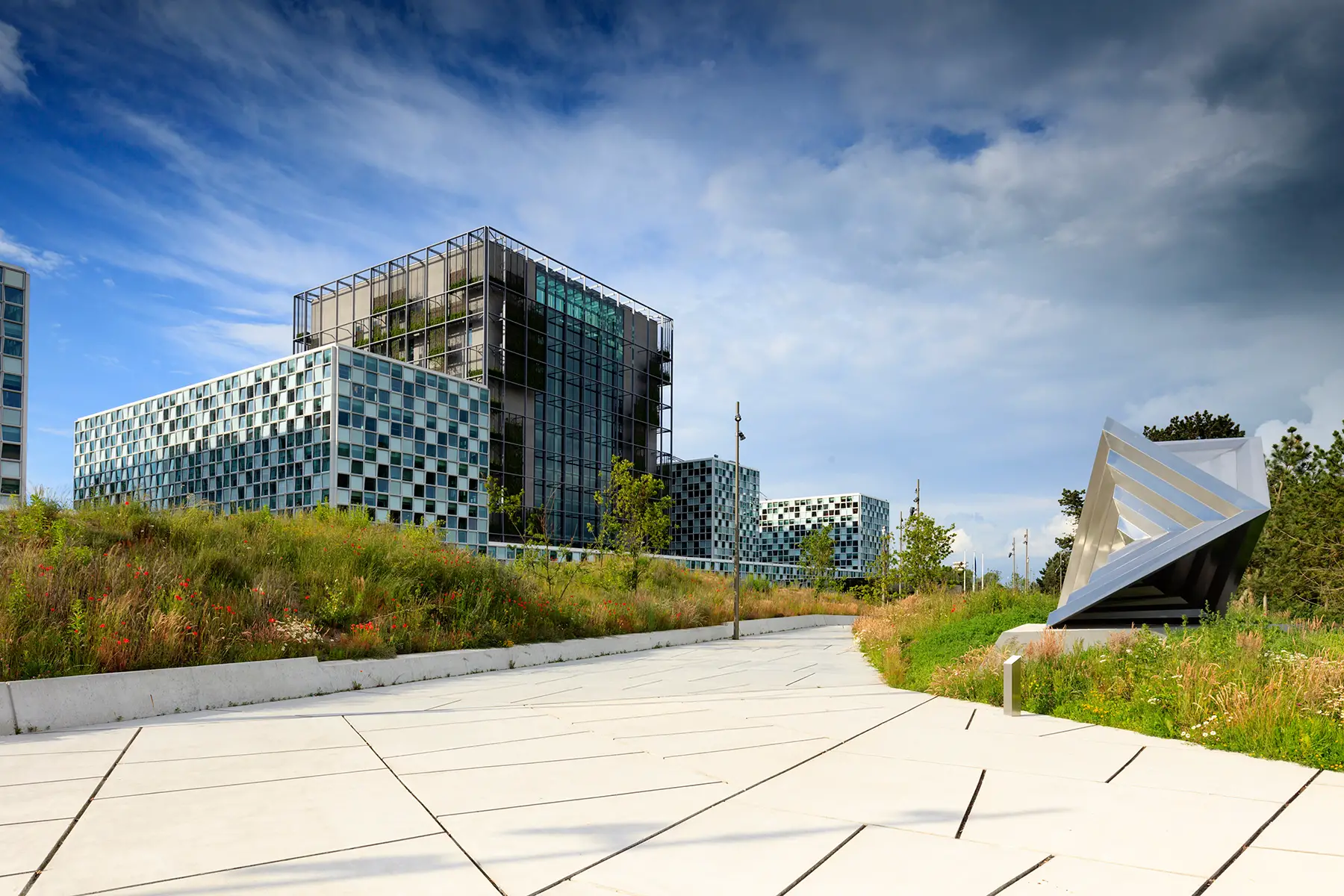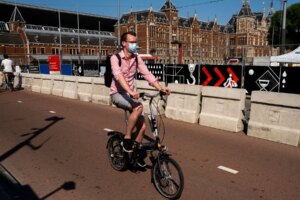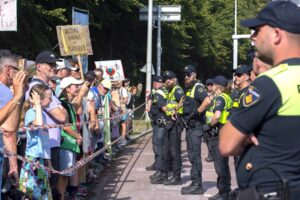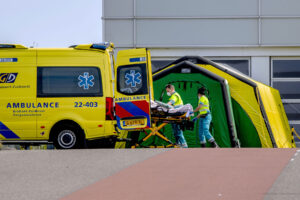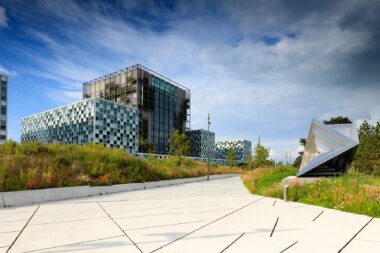Whether you’re voting, following the news, or just love a good political drama, keeping up with who’s in power is always a good move. From recent elections and key political parties to the king’s role and how the Dutch government works, this article will help you get up to speed with politics in the Netherlands.
Continue reading for more information on the following:
- Overview of politics in the Netherlands
- Which are the main political parties in the Netherlands?
- The Dutch Prime Minister: who is currently in power?
- The electoral system in the Netherlands
- What is the Dutch political landscape?
- The state of the Dutch economy
- Grassroots politics and activism in the Netherlands
- Useful resources
Ground News
Get every side of the story with Ground News, the biggest source for breaking news around the world. This news aggregator lets you compare reporting on the same stories. Use data-driven media bias ratings to uncover political leanings and get the full picture. Stay informed on stories that matter with Ground News.
Overview of politics in the Netherlands
The Netherlands is a parliamentary democracy with a constitutional monarchy. That means that the country’s monarch (i.e., King Willem-Alexander) acts as the ceremonial head of state. The country is actually run by the prime minister (minister-president or premier), who is the head of government.
Similar to other countries, the Dutch government is divided into three branches (i.e., trias politica):
- The executive power lies with the political parties that form the national government; the cabinet (kabinet) is led by the prime minister
- The legislature is called the Parliament (Der Staten-Generaal) and consists of two chambers:
- The lower House of Representatives (Tweede Kamer), which has 150 seats
- The upper house or Senate (Eerste Kamer), which has 75 seats
- The judiciary comprises the courts and the legal system in the Netherlands
According to the Economist Intelligence Unit’s 2023 Democracy Index, the Netherlands ranks ninth globally and is classed as a full democracy. The country holds elections every four years to choose its political leaders. All Dutch citizens over the age of 18 have the right to vote and stand for public office.
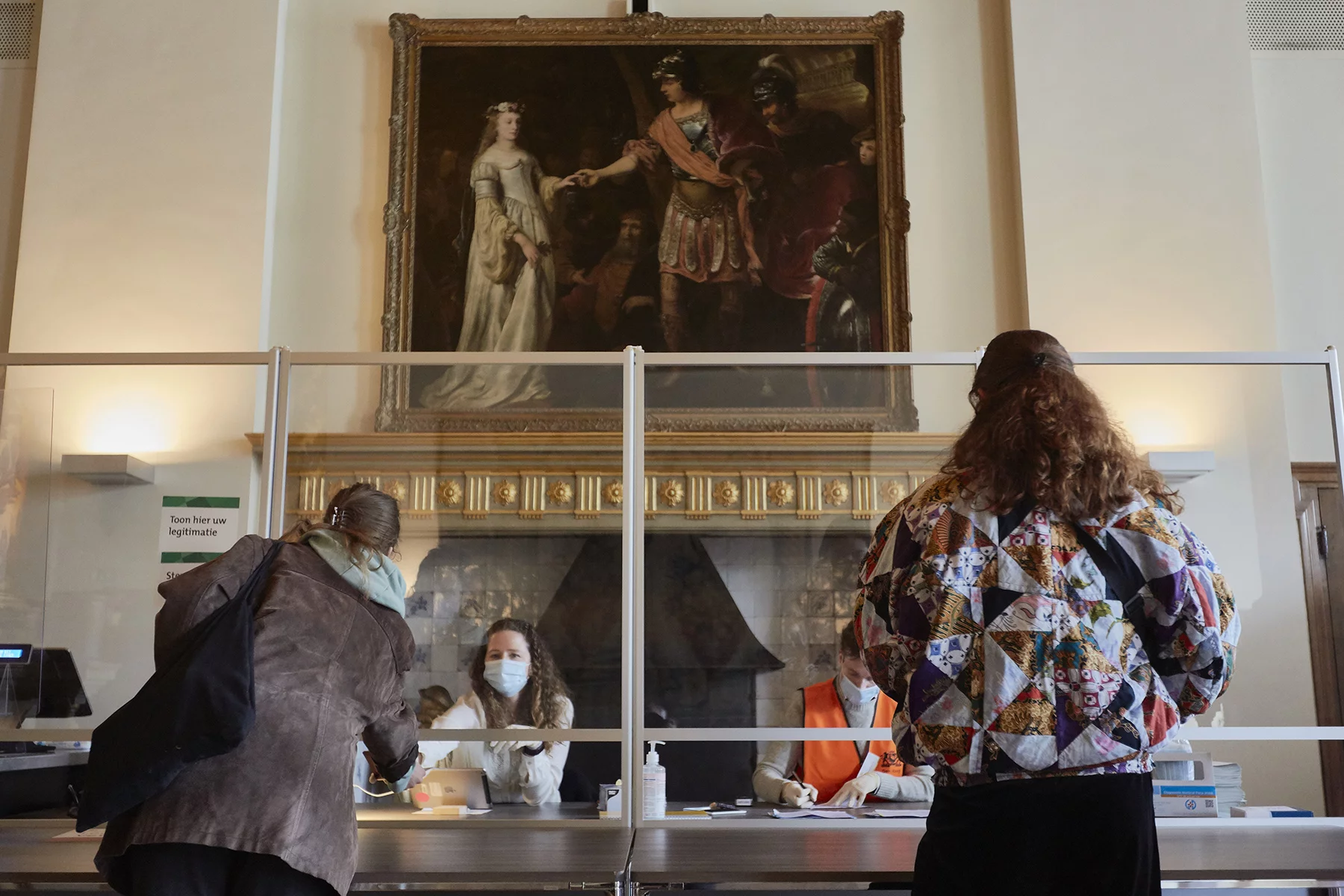
While voting is not compulsory, the Dutch score above average when it comes to civil society participation. In 2023, an incredible 91% of citizens were active in an organization that chooses and influences policy-makers.
You can read more about political rights and freedoms in our article on human rights in the Netherlands.
Which are the main political parties in the Netherlands?
There are a high number of active Dutch political parties. Following the 2023 general election, there were 15 parliamentary parties eligible for seats in the Tweede Kamer. These included:
| Party | Dutch name | Founded in | Party leader | Ideology |
| Calvinist Political Party | SGP | 1918 | Chris Stoffer | Calvinist and conservative |
| Christian Democratic Appeal | CDA | 1980 | Henri Bontenbal | Christian-democratic and socially conservative |
| Christian Union | ChristenUnie | 2000 | Mirjam Bikker | Christian-democratic and centrist |
| Democrats 66 | D66 | 1966 | Rob Jetten | Progressive and social liberalism; strongly pro-European Union (EU) |
| DENK | DENK | 2015 | Stephan van Baarle | Center-left, with a focus on minority rights |
| Farmer–Citizen Movement | BBB | 2019 | Caroline van der Plas | Center-right (though leaning toward populism), with a focus on agrarian issues |
| Forum for Democracy | Forum voor Democratie | 2015 | Thierry Baudet | Right-wing populism and Eurosceptic |
| Green Left-Labour Party | GroenLinks-PvdA | 2023 | Frans Timmermans | Progressive-left and socially democratic, with a focus on the environment |
| JA21 | JA21 | 2020 | Joost Eerdmans | Conservative liberalism, often leaning toward right-wing populism |
| New Social Contract | Nieuw Sociaal Contract | 2023 | Pieter Omtzigt | Center to center-right |
| Party for Freedom | PVV | 2006 | Geert Wilders | Nationalism and right-wing populism, with anti-Islam, anti-immigration, and anti-EU views |
| Party for the Animals | Partij voor de Dieren | 2002 | Esther Ouwehand | Left-wing, promoting animal rights and environmental issues |
| People’s Party for Freedom and Democracy | VVD | 1948 | Dilan Yeşilgöz | Conservative liberalism and center-right, promoting free-market economics |
| Socialist Party | SP | 1972 | Jimmy Dijk | Left-wing socialism and Eurosceptic |
| Volt Netherlands | Volt | 2018 | Laurens Dassen | Social liberalism |
The Dutch Prime Minister: who is currently in power?
On 7 July 2023, the Dutch cabinet resigned after failing to agree on a policy for refugee family reunification. A couple of days later, now-former Prime Minister Mark Rutte (VVD) announced his departure from politics. He held the position from October 2010 to July 2024, making him the longest-serving prime minister in Dutch history.

Rutte is succeeded by the non-partisan politician Dick Schoof (formerly PvdA). The new prime minister was sworn in by the king on 2 July 2024. On 3 June 2025, Geert Wilders’ party left the coalition, forcing the government to collapse. Schoof will continue to be the interim prime minister until a new cabinet can be formed.
The 2023 election results in the Netherlands
The most recent general elections in the Netherlands took place in November 2023. Mirroring trends around the world, the far-right populist party PVV won by a landslide. The party clinched a massive 37 seats (gaining 20 more than last time) and, with that, became the largest party in parliament.
The voting results of other Dutch political parties include:
- GroenLinks/PvdA – 25 seats, a marked improvement from the previous election when they got 17 seats. However, the leftist party refused to work together with the populist PVV.
- VVD – the former ruling party won 24 seats, losing 10 seats compared to the 2021 election
- Newcomer New Social Contract – 20 seats
- D66 – 9 seats, suffering a tremendous loss compared to last time when they won 24 seats
- BBB – 7 seats, gaining 6 seats compared to the 2021 election
- CDA – 5 seats, which is 10 seats less than during the last election
The total number of parties participating in the elections was 26.
Due to infighting and refusals to compromise, the formation of a governing coalition was significantly delayed. Seven months after the election, a new right-wing cabinet was formed by the PVV, VVD, New Social Contract, and BBB.
While many expected Geert Wilders to become Prime Minister, the coalition refused his leadership. Instead, they elected Schoof, who is without a party.
Under the motto hope, courage, and pride (hoop, lef, en trots), the government plans to impose stricter measures on asylum seekers, scrap Dutch family reunification for refugees, and reduce the number of international students in the Netherlands.
The electoral system in the Netherlands
As said before, elections in the Netherlands typically take place every four years.
The national government (i.e., the House of Representatives) is democratically elected by citizens who cast their political votes. It has 150 seats, and a party needs to win 76 for a majority. Because it is almost impossible to get this number of seats, the Dutch government usually consists of several coalition parties, often representing a range of ideologies.
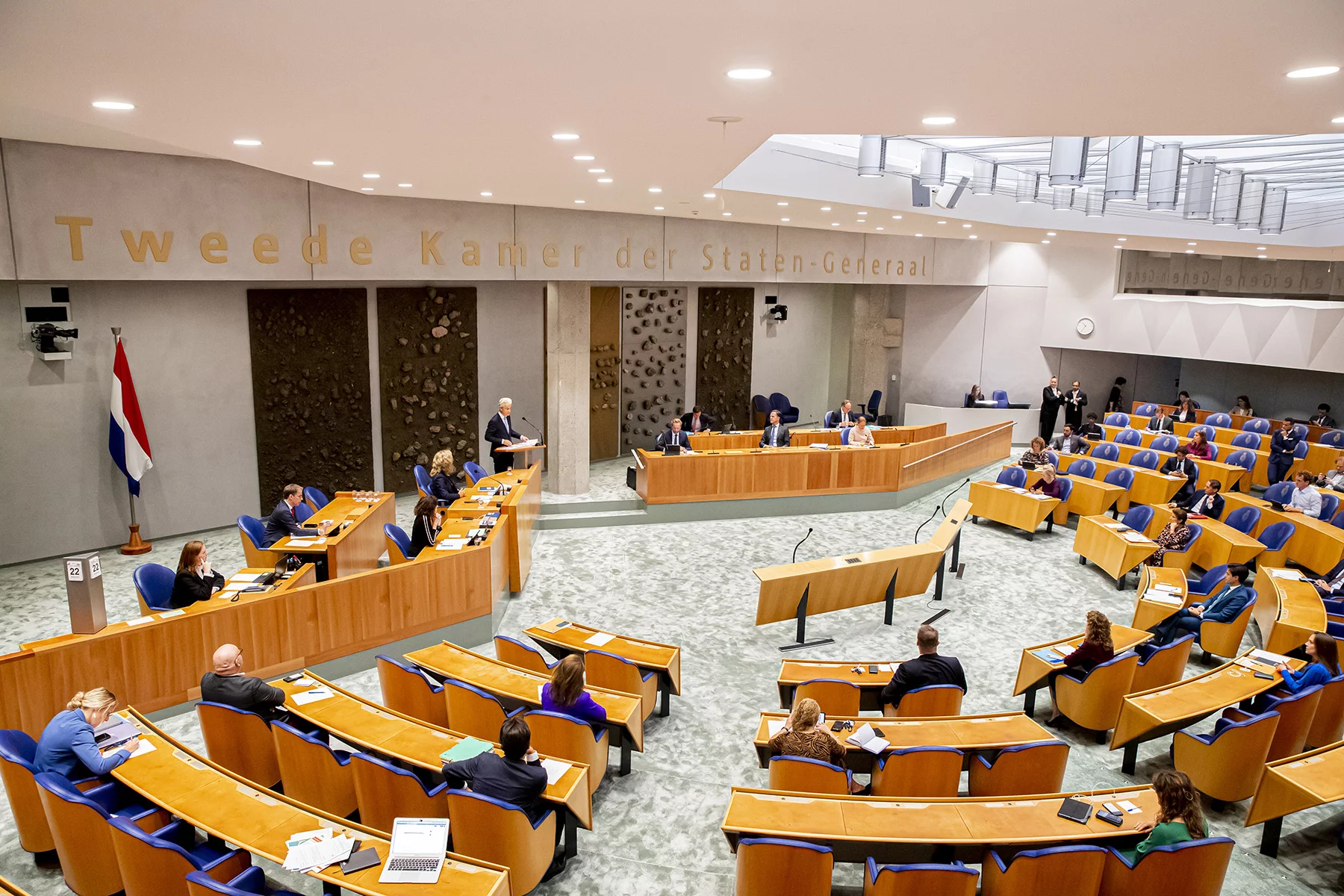
The Senate, on the other hand, is not directly elected by the Dutch population. Instead, citizens vote for the:
- Provincial Council (Provinciale Staten) in the Netherlands
- Electoral committee (kiescollege) in the Caribbean Netherlands
When the results are in, the members of these different bodies elect the House’s 75 seats. Their votes are weighted according to the size of their populations.
In addition to the above, the Netherlands also holds elections for:
- The European Parliament (Europees Parlement) – every five years
- Municipal councils (gemeenteraden) – every four years
- Regional water authorities (waterschappen) – every four years; these coincide with the provincial elections
Who can vote in the Netherlands?
All Dutch citizens over the age of 18 have the right to vote in Dutch elections. This includes people from the islands of Bonaire, Sint Eustatius, and Saba (the BES islands), who are also Dutch citizens.
Non-Dutch residents may only vote in selected elections, depending on their nationality and residency status:
- Legal residents who have lived in the Netherlands for at least five years can vote in the municipal elections and water board elections
- EU citizens living in the Netherlands have immediate voting rights in elections for the municipality, European Parliament, and regional water boards
- All legal residents have the right to vote in the water board elections
How to vote in the Netherlands
Dutch elections usually take place on a Wednesday; voters receive their voting pass in the mail at least two weeks prior to elections. There are many voting stations (stembureaus) across the country, and you’ll see signs for your local polling place.
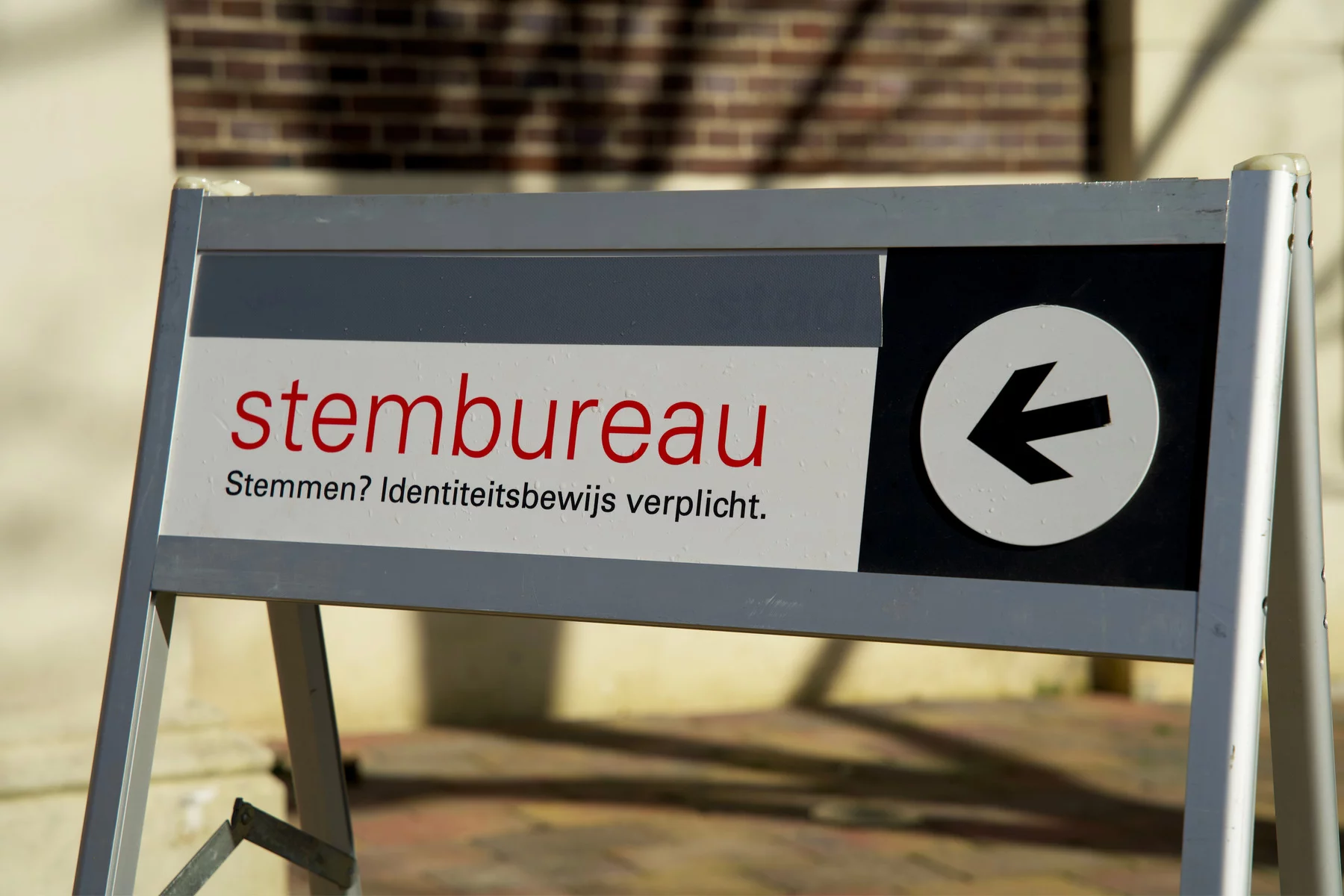
At the voting station, you’ll need to show your ID and voting pass. You then receive a ballot paper and are directed to the polling booth. If you’re unable to go to the voting station, you can also appoint someone to vote on your behalf. The voting pass includes instructions on how to do this.
What is the Dutch political landscape?
While the Netherlands is known for its long liberal political tradition, its political landscape has changed considerably over the last few decades.
Between 1998 and 2002, the Dutch coalition governments consisted of the PvdA, D66, and VVD. During those years, same-sex marriage and euthanasia became legal.
At the start of the new century, the CDA became more prominent. From 2002 to 2012, the party dominated the political landscape and formed coalitions with – mostly – the VVD. After a five-year gap, during which the VVD worked together with the PvdA, the CDA was back in power (though not as prominent as before). Between 2017 and 2023, the Dutch government comprised the VVD, CDA, D66, and the ChristenUnie.
Following the 2023 General Elections, the Dutch political scene swung to the (far)right, with the PVV becoming the largest party. Together with the VVD, New Social Contract, and BBB, the PVV formed the most right-leaning government in Dutch history. This coalition was toppled in June 2025, after Wilders withdrew in protest over government policy for asylum seekers. Polls following that decision suggest that the PVV would lose seats but would remain the largest party, just ahead of the center-right VVD.
Historical issues in Dutch politics
Anti-immigration and anti-Islam populism
During the 2002 elections, right-wing politician Pim Fortuyn was assassinated, sending shockwaves throughout the world. Fortuyn was one of the first politicians to get an anti-immigration party to a position of prominence. The anti-Islam sentiment in the Netherlands was further fueled by the murder of film director Theo van Gogh in 2004.
In 2014, Wilders supporters chanted “Less! Less! Less!” (Moroccans in the Netherlands), evoking comparisons with Adolf Hitler’s Nazi party.

Since then, anti-immigration and anti-Islam populist views have become more common in Dutch politics. Parties sharing these views include FvD, Interest of the Netherlands (Belang van Nederland – BVNL), JA21, and PVV.
Childcare benefits scandal
In January 2021, the Dutch government resigned en masse over a child benefits scandal (Toeslagenaffaire)
Between 2013 and 2019, the Dutch Tax Office wrongly accused around 26,000 parents of social benefits fraud. As a consequence, many families got into legal and financial trouble. Some lost their jobs and houses, while others lost their parental rights and suffered from mental health problems. There are also reports that speculate that over 60 people took their own lives as a result.
In 2020, the tax authorities admitted that at least 11,000 families were subjected to extra scrutiny because of their dual citizenship, fueling outrage across the country. Following a parliamentary interrogation in 2021, the entire cabinet fell.
Despite this and other scandals, Prime Minister “Teflon Mark” Rutte continued to lead the Dutch government until 2024.
The Netherlands in the European Union
The Netherlands was one of the founding members of the EU, which was established in 1993. The country also joined the Eurozone in 1999, replacing its currency, the Guilder, with the Euro.
While the Dutch are generally dissatisfied with the union, not many would want a ‘Nexit’ (Netherlands exit). In 2024, only 15% of the population would vote to leave the EU.
The ruling party, PVV, is in favor of leaving the EU. Other governing parties are open to a potential referendum, while the D66 wants to include EU membership in the constitution.
The state of the Dutch economy
The Netherlands is a prosperous country with an open economy that relies heavily on foreign trade. As of 2023, its gross domestic product (GDP) was €1.067 billion, or €57,800 per capita, making the Dutch the fourth richest country in the EU.

The country’s main industrial activities are food processing, chemicals, oil refining, and the manufacture of electrical appliances. Despite its size, the Netherlands is also the second-largest exporter of agricultural and horticultural products, after the United States.
According to The Dutch Bank (De Nederlandse Bank – DNB), the country’s GDP is projected to increase by 0.5% in 2024 and 1.3% in 2025. The European Commission is a little more optimistic and estimates it’ll grow by 0.8% in 2024 and 1.5% in 2025.
Our article on the cost of living in the Netherlands covers more about inflation and average prices.
Grassroots politics and activism in the Netherlands
Whatever your grudge or cause, the Netherlands will have formed an activist group.
One such prominent activist movement is Kick Out Zwarte Piet (KOZP). This group aims to ban the Zwarte Piet caricature (Black Pete) from the Sinterklaas tradition, arguing that its portrayal is racist and discriminatory. Founded in 2014, KOZP has made massive strides; for example, Google announced in 2020 that it would ban advertising that featured any version of the character.
Another high-profile activism group in the Netherlands is the farming industry. In 2019, the Dutch agrarians started protesting against the government’s proposal to halve the country’s livestock to limit nitrogen emissions. They also demanded that their profession receive more respect from society by blocking roads and distribution centers with their tractors. Large areas in the Netherlands flew the Dutch flag upside down to voice their support.
On the other side of this coin sits Extinction Rebellion NL, the Dutch branch of the global environmental movement. These activists try to raise awareness of the climate crisis and urge politicians to act. Their demonstrations have repeatedly blocked the A10 highway in Amsterdam and the A12 highway in The Hague.
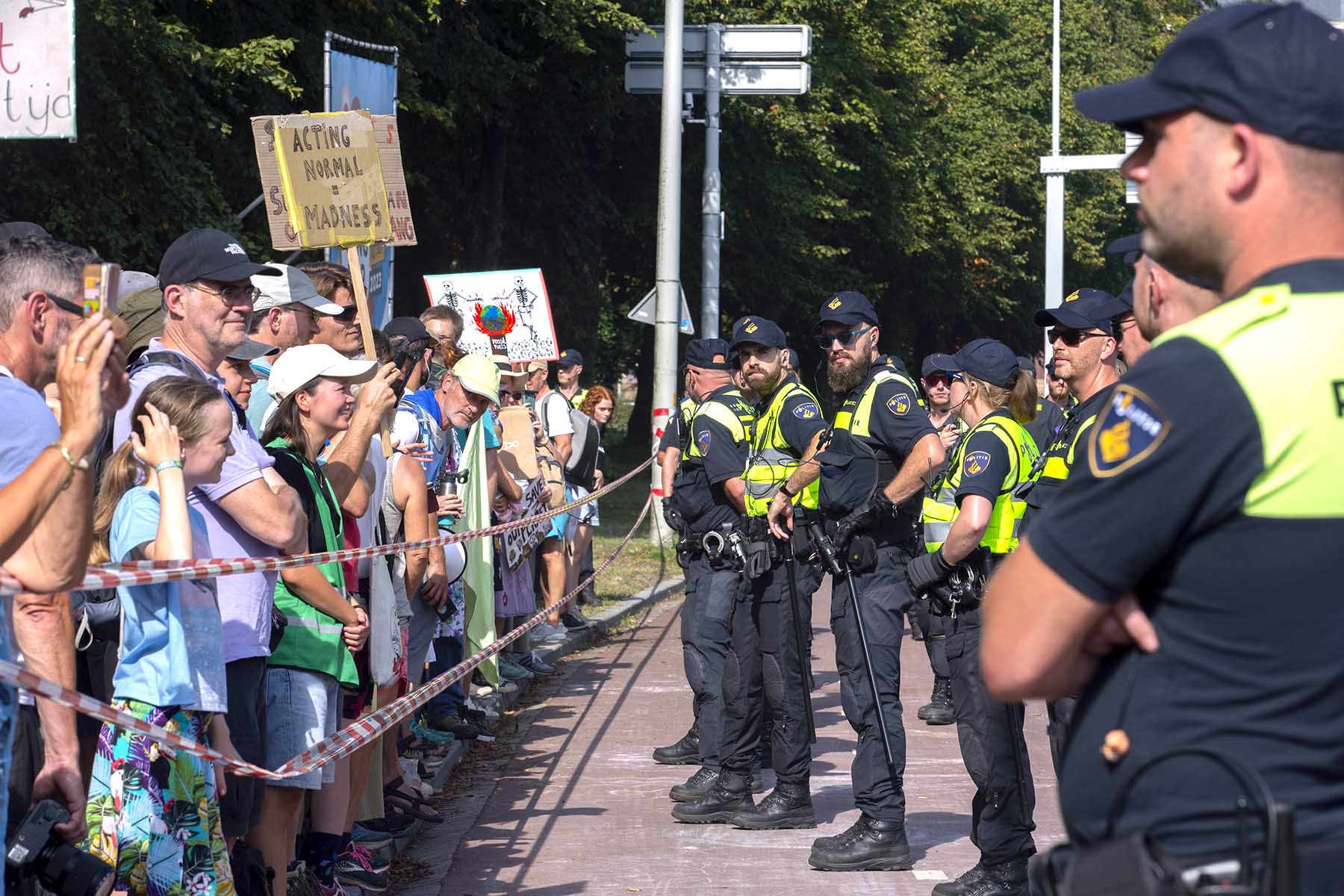
How to go into politics in the Netherlands?
The best way to become politically active in the Netherlands is by joining a political party. You can find details on how to join and become an active member on the website of whatever political party you want to join.
While English information is typically scarce, don’t let that put you off. Joining a political party can be a great way to find like-minded people and, of course, improve your Dutch.
Alternatively, you can start your own party. The Netherlands does not have nationality or age restrictions to do so. For this, you need to register your party with a central polling station. The costs for registering a party are:
- €450 for national elections
- €225 for Provincial Councils and Regional water authorities
- €112.50 for municipal elections
New parties must also be notarized and registered with the Dutch Chamber of Commerce (Kamer van Koophandel).
Useful resources
- Government.nl – official website of the government of the Netherlands
- CBS – provides statistics relating to various topics in the Netherlands
- House of Representatives – information on the executive power of the Dutch government


